1. “There is no reason anyone would want a computer in their home.” — Ken Olsen, 1977
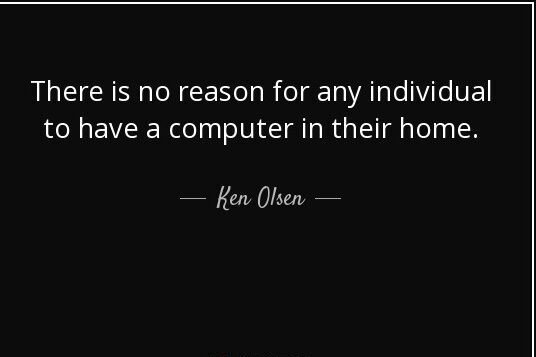
People have always tried to predict the future, but even the brightest minds have missed it completely. Ken Olsen, founder of Digital Equipment Corporation, believed home computers were unnecessary. He thought they were only for scientists and governments, not families or students. A decade later, Apple and IBM changed everything, turning computers into everyday tools. By the 1990s, they were common in homes, and today they fit in our pockets. What Olsen dismissed as useless became essential for work, education, and entertainment. His prediction reminds us how quickly innovation transforms life, often faster than anyone dares to imagine.
2. “Television won’t last.” — Darryl Zanuck, 1946
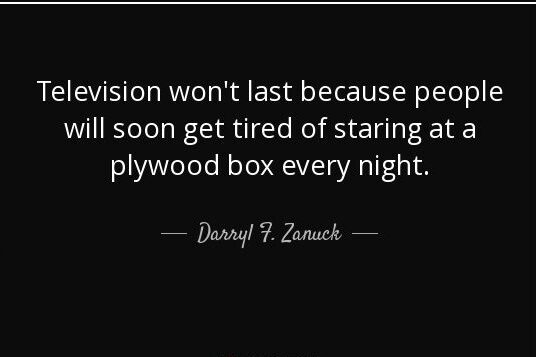
Film executive Darryl Zanuck believed people would tire of staring at a glowing box every night. He predicted that television was just a passing trend that would never replace the magic of the movies. Instead, television became the heartbeat of modern culture. It shaped politics, brought entertainment into living rooms, and connected the world through shared stories. Decades later, it evolved into streaming and global media networks. The same screens people once doubted are now part of everyday life. Television didn’t fade away; it became the storyteller of generations, turning Zanuck’s confident prediction into one of history’s biggest misreads.
3. “Guitar groups are on their way out.” — Decca Records, 1962
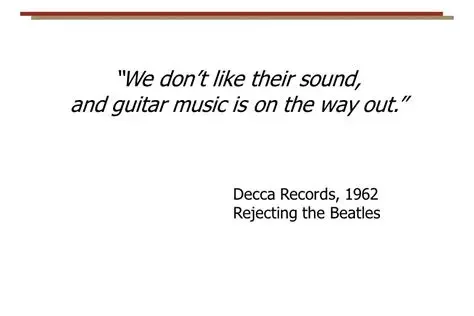
When Decca Records rejected The Beatles, they believed guitar bands were finished. Rock music, they claimed, had already peaked and was losing its charm. Within two years, The Beatles became the biggest band in the world, redefining sound, culture, and youth identity. Their music inspired fashion, art, and social change, showing how powerful a few chords could be. Decca’s rejection became legendary, a permanent reminder that creativity cannot be measured by trends. What they dismissed as noise became the soundtrack of a generation. The label’s mistake proved that sometimes the future belongs to those brave enough to believe differently.
4. “The telephone has too many shortcomings to be seriously considered.” — Western Union, 1876
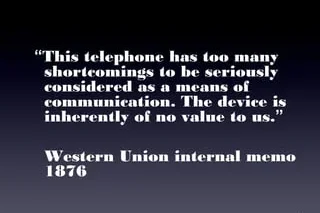
When Alexander Graham Bell introduced the telephone, Western Union executives dismissed it as impractical. They thought the telegraph was superior and saw no reason to invest in Bell’s invention. But within years, the world was connected by voice instead of dots and dashes. The telephone changed communication forever, bridging families, businesses, and countries. Western Union’s refusal to adapt cost them the chance to lead a revolution. What they saw as flawed became one of the most transformative inventions in history. It proved that innovation often looks imperfect at first, but vision sees beyond what’s familiar and hears what’s possible.
5. “Rocket flights into space are impossible.” — The New York Times, 1920
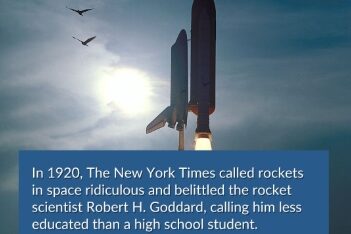
In 1920, The New York Times mocked physicist Robert Goddard for suggesting rockets could work in space. They claimed he didn’t understand basic physics. Forty-nine years later, astronauts reached the Moon on rockets built using his theories. The Times eventually printed a quiet apology, long after humanity had taken its first steps beyond Earth. Goddard’s dream, once laughed at, became reality. His persistence showed that imagination often precedes proof, and visionaries must endure disbelief before success arrives. The same paper that mocked him became part of a story proving that no idea is too bold when curiosity leads the way.
6. “The internet will fail like the fax machine.” — Businessweek, 1994
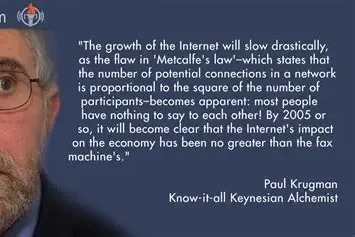
When the internet began, many saw it as a temporary craze. Businessweek confidently predicted it would fizzle out, much like the fax machine before it. They underestimated how deeply people crave connection. Instead of fading, the internet grew into the foundation of modern life. It transformed communication, shopping, education, and entertainment. Billions of people now depend on it daily, from sending messages to running entire businesses. What seemed unnecessary became unavoidable. The prediction that it would fail now feels almost humorous, a reminder that revolutions rarely announce themselves. The internet didn’t fade away; it built the world we live in.
7. “The world will only ever need five computers.”
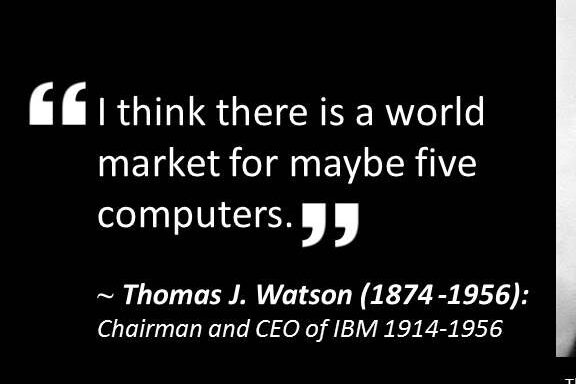
In the 1940s, computers were massive, expensive machines that filled entire rooms. Experts believed only a few would ever be necessary, mainly for governments and research institutions. They never imagined a world where every person would own one, let alone carry one in their pocket. Today, billions of smartphones operate as powerful personal computers, connecting people across continents. The prediction that five computers could serve the world seems absurd now. Technology outpaced every expectation, turning complexity into convenience. What was once rare became routine, proving that progress often hides inside ideas too large for one generation to fully grasp.
8. “The automobile is just a fad.”
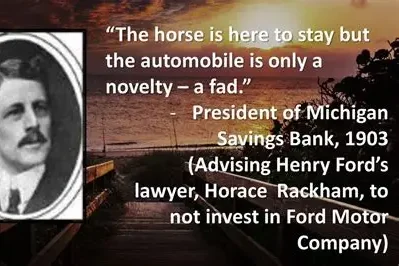
When the first cars appeared, many critics called them noisy, dangerous toys for the rich. They believed horses would always rule the roads. But as engines improved, so did trust and curiosity. Within decades, cars reshaped cities, created jobs, and gave people freedom of movement. The automobile became an inseparable part of modern identity. Roads and highways replaced stables, and what once seemed unnecessary became essential. The same skeptics who mocked drivers soon found themselves behind the wheel. The car’s story is proof that every great invention begins with resistance before it becomes the rhythm of everyday life.
9. “Nuclear energy will make electricity too cheap to meter.”

In the 1950s, scientists and politicians promised a future powered by limitless nuclear energy. They said electricity would become so abundant that it wouldn’t even need to be measured. Reality turned out very different. While nuclear power provided vast energy, it came with high costs, strict regulations, and safety concerns. Accidents and political challenges slowed its expansion. Instead of being free and endless, it became complex and expensive. The dream of infinite energy never arrived, but the ambition inspired decades of innovation. Sometimes the future doesn’t fail; it just unfolds differently than we expect, shaped by lessons instead of promises.
10. “Airplanes will never be practical.”

Before flight became common, many believed airplanes were useless inventions. Skeptics thought they would never compete with trains or ships for travel. Then the Wright brothers proved the impossible, and the world never looked back. Within decades, air travel connected nations, shortened distances, and made global trade possible. Today, hundreds of thousands of flights take off daily, moving people and goods around the world. Airplanes became a symbol of human progress. The once doubted invention changed the rhythm of life, proving that practicality often follows imagination. What once looked unrealistic became the very thing that brought humanity closer together.
11. “Radio has no future.”
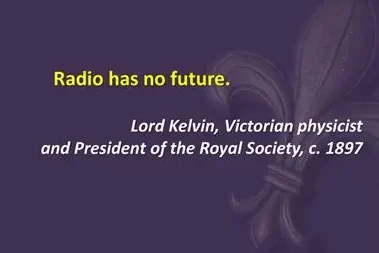
When early scientists studied radio waves, many dismissed them as useless for communication. They couldn’t imagine voices or music traveling invisibly through air. But soon, radios filled homes across the world, becoming the centerpiece of family life. People gathered to listen to music, news, and drama every night. Radio shaped culture, influenced politics, and connected people during times of war and peace. Even today, its influence lives on in podcasts and broadcasts. The technology once written off as a passing curiosity became one of the most powerful ways to share ideas, proving that the invisible can be unforgettable.
12. “Electric light is a fraud.”

When Thomas Edison revealed his light bulb, skeptics called it dangerous, costly, and unnecessary. Gas lamps were already trusted, and electricity seemed strange. But once cities began glowing under electric light, everything changed. Nights became safer, work hours extended, and life grew brighter in every sense. People who once doubted its usefulness soon relied on it completely. Edison’s invention turned darkness into opportunity and reshaped human activity. The light bulb became more than just a gadget; it symbolized progress itself. What critics called a fraud became one of the world’s greatest inventions, shining proof that disbelief never dims real innovation.
13. “Movies will die out.”
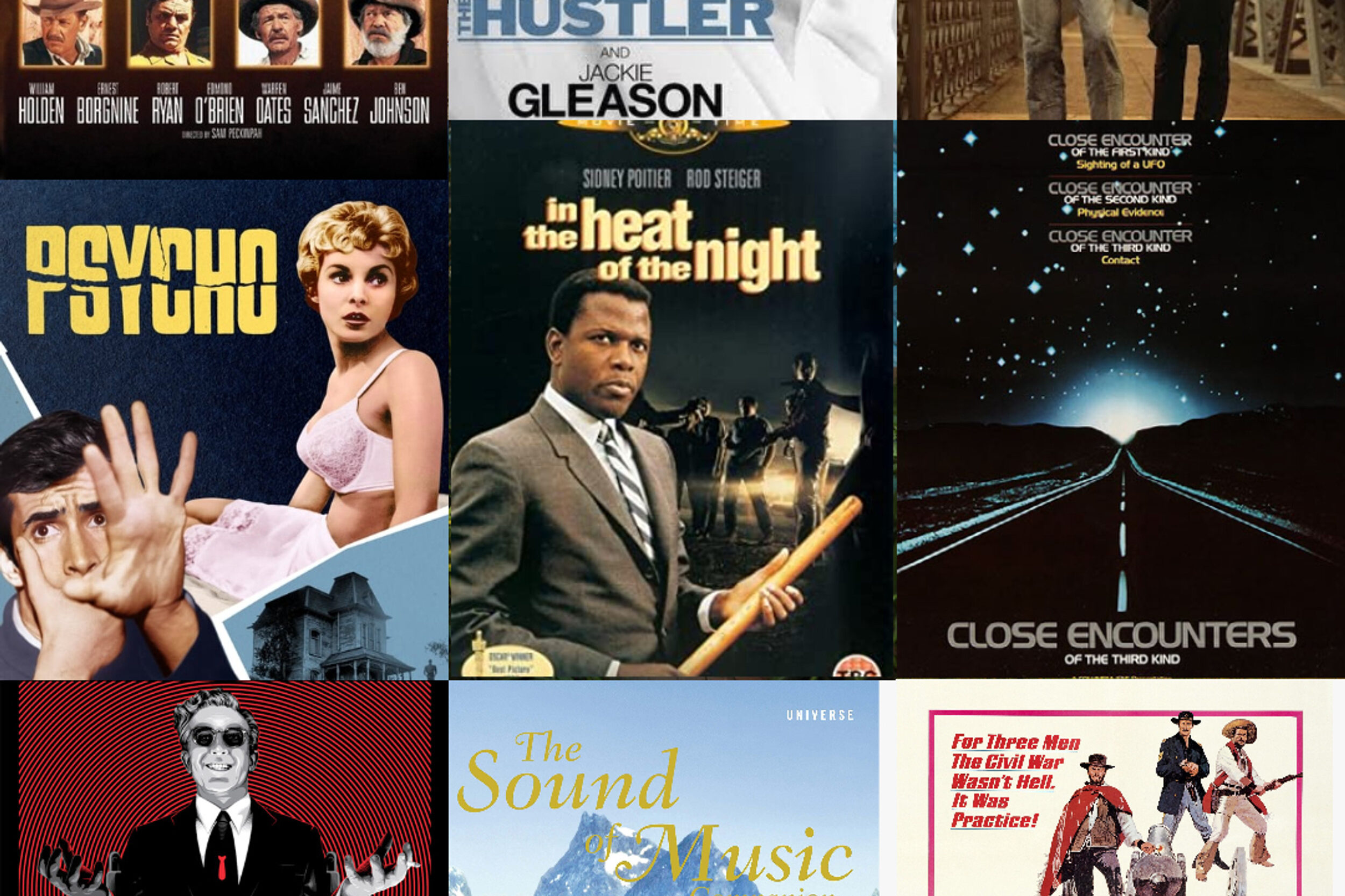
When sound arrived in film, some experts claimed the movie industry had peaked. They believed audiences would lose interest once the novelty faded. Instead, cinema grew into one of the most powerful art forms in history. Movies gave people escape, emotion, and inspiration. From black-and-white classics to modern blockbusters, they became a global language of storytelling. Theaters turned into cultural landmarks, and streaming made films more accessible than ever. The prediction that movies would vanish couldn’t have been more wrong. What started as a silent experiment continues to speak louder with each generation, proving imagination never truly fades.
14. “People will never shop online.”

In the 1990s, skeptics laughed at the idea of buying things over the internet. They said no one would trust credit cards on a screen or wait for deliveries. Yet today, e-commerce dominates global retail. From groceries to furniture, millions of purchases happen online every second. Companies like Amazon and eBay built industries on the very idea once dismissed as absurd. Online shopping became a part of daily life, blending convenience with choice. The critics underestimated how much people value comfort and control. What began as an experiment in technology evolved into the way the world now does business.
15. “X-rays are a hoax.”
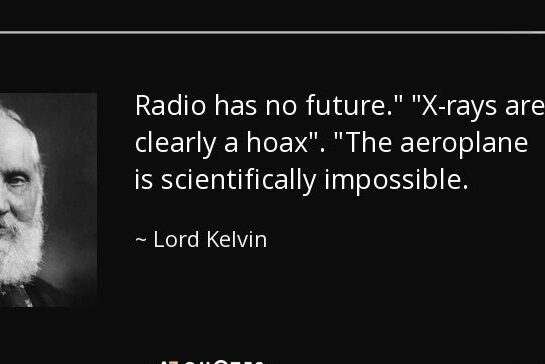
When Wilhelm Röntgen discovered x-rays, many scientists and doctors doubted him. The idea of invisible rays that could see through flesh sounded like fantasy. Yet, months later, x-rays were being used in hospitals to diagnose fractures and diseases. They transformed medicine overnight, allowing doctors to peer inside the human body without surgery. The same skeptics who laughed at Röntgen soon relied on his discovery to save lives. What was once dismissed as a hoax became one of the most trusted tools in healthcare. It’s a reminder that real breakthroughs often begin where belief ends, waiting for proof to shine.
16. “Horses will never be replaced.”

At the start of the 20th century, horses powered cities, farms, and transport. People believed they were too dependable to be replaced. When automobiles appeared, they were viewed as loud, unreliable machines. But within a generation, cars transformed the world. Streets filled with engines instead of hooves, and industries rose to support them. Horses became symbols of nostalgia instead of necessity. The shift happened so quickly that even believers in tradition couldn’t keep up. The story of the horse reminds us how progress often begins quietly before galloping past expectation, changing life in ways no one sees coming.
17. “Women will never play serious sports.”

Early 20th-century commentators insisted that women’s bodies were too fragile for competition. They said female athletics lacked excitement and purpose. Yet, generation after generation, women proved them wrong. From Billie Jean King to Serena Williams, female athletes broke barriers and inspired millions. Today, women’s sports draw global audiences and sponsorships once reserved for men. The determination that was once dismissed as ambition became undeniable excellence. What society refused to take seriously now defines strength and equality. The evolution of women in sports stands as a reminder that limitations are often built by others but broken by those who dare.
18. “Mail will soon be delivered by rockets.”

In the 1920s and 1930s, futurists predicted rockets would replace airplanes for mail delivery. Several experiments were even attempted, but most ended in fiery failure. The idea eventually fizzled out, replaced by something far more revolutionary: email. What rockets couldn’t do physically, computers achieved instantly. Digital messages crossed the world in seconds without smoke or noise. The dream of faster communication still came true, just not as expected. Rocket mail remains a curious story of misplaced optimism, while email quietly changed the world. It shows that innovation often takes a different route to reach the same destination.
19. “By 2000, families will vacation on the Moon.”
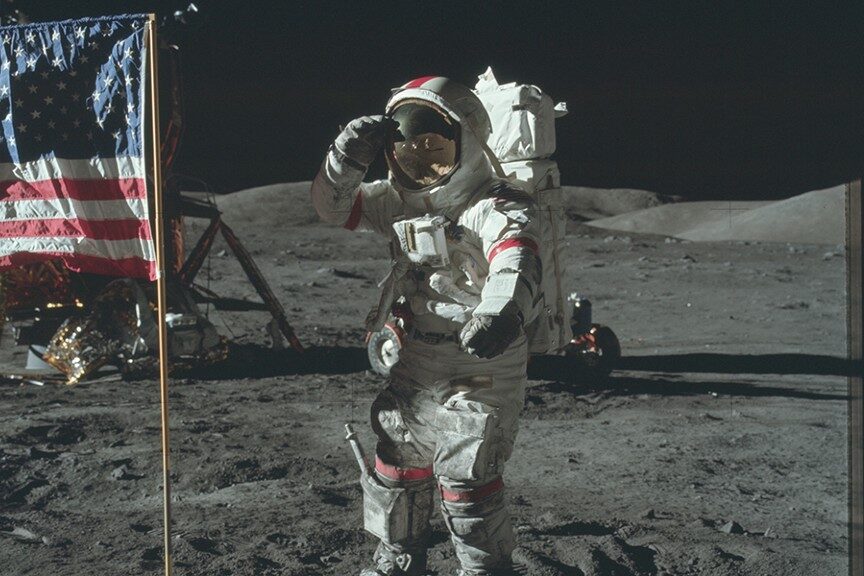
During the 1960s, space travel inspired wild predictions. Magazines featured illustrations of lunar hotels and space cruises. Futurists believed that by the year 2000, families would spend their holidays on the Moon. While space exploration advanced dramatically, tourism never reached that dream. Only a few astronauts have walked there, and today, only billionaires can afford a glimpse of space. The prediction wasn’t entirely wrong, just early. Humanity’s curiosity about the stars hasn’t faded. It simply waits for technology to catch up. One day, that vision might come true, but for now, the Moon remains more postcard than playground.
20. “Artificial intelligence will never rival humans.”

For much of the last century, artificial intelligence was considered science fiction. Experts believed machines could never think or create like humans. Today, AI writes, paints, translates, and assists in almost every industry. It drives cars, diagnoses diseases, and learns faster than anyone once imagined. While it hasn’t replaced human creativity or emotion, it has changed how we live and work. The prediction that AI would never matter now feels outdated. Technology continues to blur the line between imagination and reality. These once-ridiculed ideas remind us that doubt doesn’t stop progress. The future always belongs to those who believe. Imagine what predictions today will surprise us next.
This story 20 Ridiculous Predictions About the Future That Were Totally Wrong was first published on Daily FETCH


